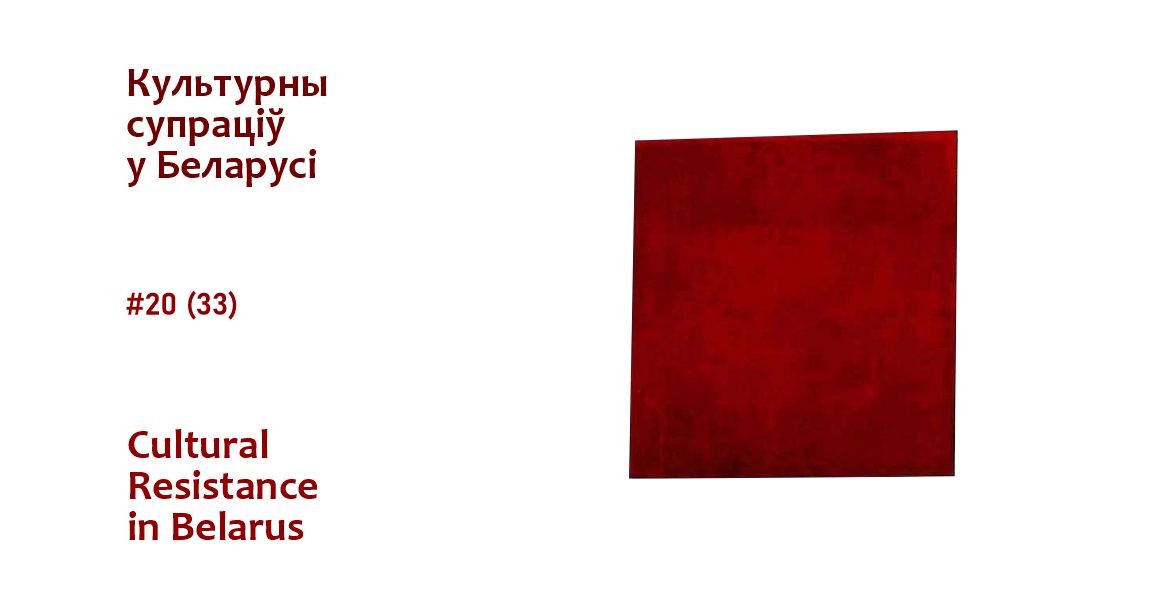
Download the pdf-version of issue 33 of Cultural Resistance Monitoring
Persecution, Convictions, Cultural Policy

Julija Čarniaŭskaja [Yulia Charniauskaya] – scholar, novelist, playwright, candidate of cultural studies, former professor of the Belarusian State University of Culture and Arts, specialist in cultural anthropology, author of books on cultural studies, member of the Belarusian PEN Center – was detained on 18 May, during the crackdown on media resource tut.by and its co-workers, and no one knew where she was. On May 20, after a wide resonance, it was reported that Ms. Čarniaŭskaja was at the interrogation by the Financial Investigations Department of the State Control Committee. She’s currently under house arrest.
Ksenia Tyrsikava, art manager was detained on allegations of having participated in the women’s protest action on May 12 and sentenced to 15 days of administrative arrest.
Ihar Bancar [Igor Bantser], musician and social activist, 1,5 of open air prison, had his verdict unchanged by the court of appeal.
Ihnat Sidorčyk [Ihnat Sidorchyk], a film director, actor and poet, sentenced to 3 years of open air prison, had his verdict unchanged by the court of appeal.

Uladzimir Hundar, a local historian and well-known activist from Baranavičy, was sentenced to three years in a penal colony (tried under Article 366 of the Criminal Code – violence or threat against an official or other person performing public duty).
Mija Mitkievič [Mia Mitkevich], a cultural manager, was sentenced to three years in prison for several comments about police officers on social media.
On May 20, KGB officers searched the home of Anatol Kudłasievič [Anatol Kudlasevich], a writer and activist, for 5 hours, confiscated his computer and other data storage devices, and interrogated him as a witness in the [Mikałaj Aŭtuchovič] Mikalai Autukhovich case.
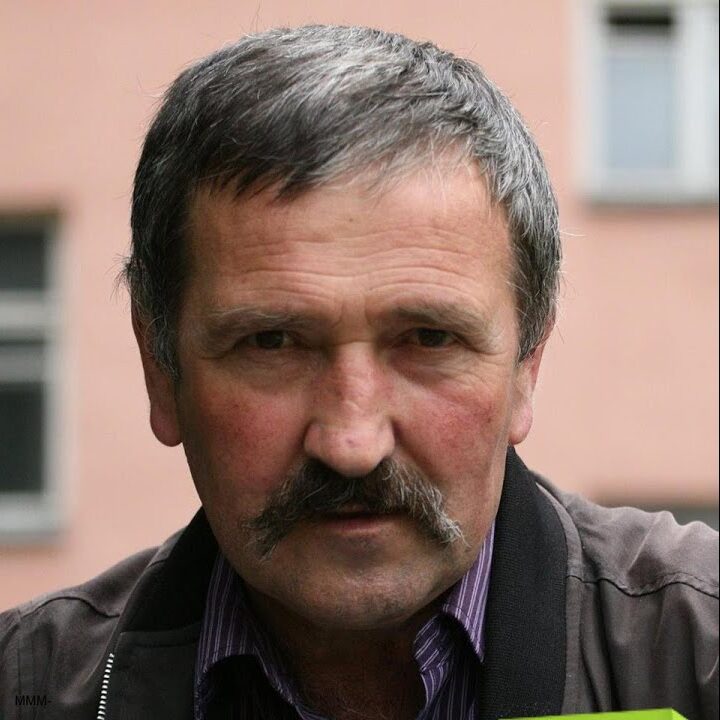
The Prosecutor General of Belarus Andrej Švied [Andrei Shved] announced it that the Prosecutor’s Office is looking for those responsible for the genocide of Belarusians among Lithuanians and Poles and is preparing documents to be sent to these states.
The official propaganda continues its attacks on independent Belarusian culture. In one of their recent publications the author threatens the founding organizations of the Natallia Arsennieva Award honouring the best poetry book in the Belarusian language (co-founded by the Belarusian PEN Center, the Union of Belarusian Writers and the World Association of Belarusians “Baćkaŭščyna” in partnership with the Orsa-Romano Cultural and Educational Foundation and the charity fund at the Association of Belarusians in Great Britain), these organizations are called “fascist”, also the jury member Hanna Seviaryniec and the patroness of the award – the poet Natallia Arsennieva (who died in 1997), also the author of the poem “Mahutny Bozha”, which became a protest hymn of the Belarusians) are libelled.
Symbols
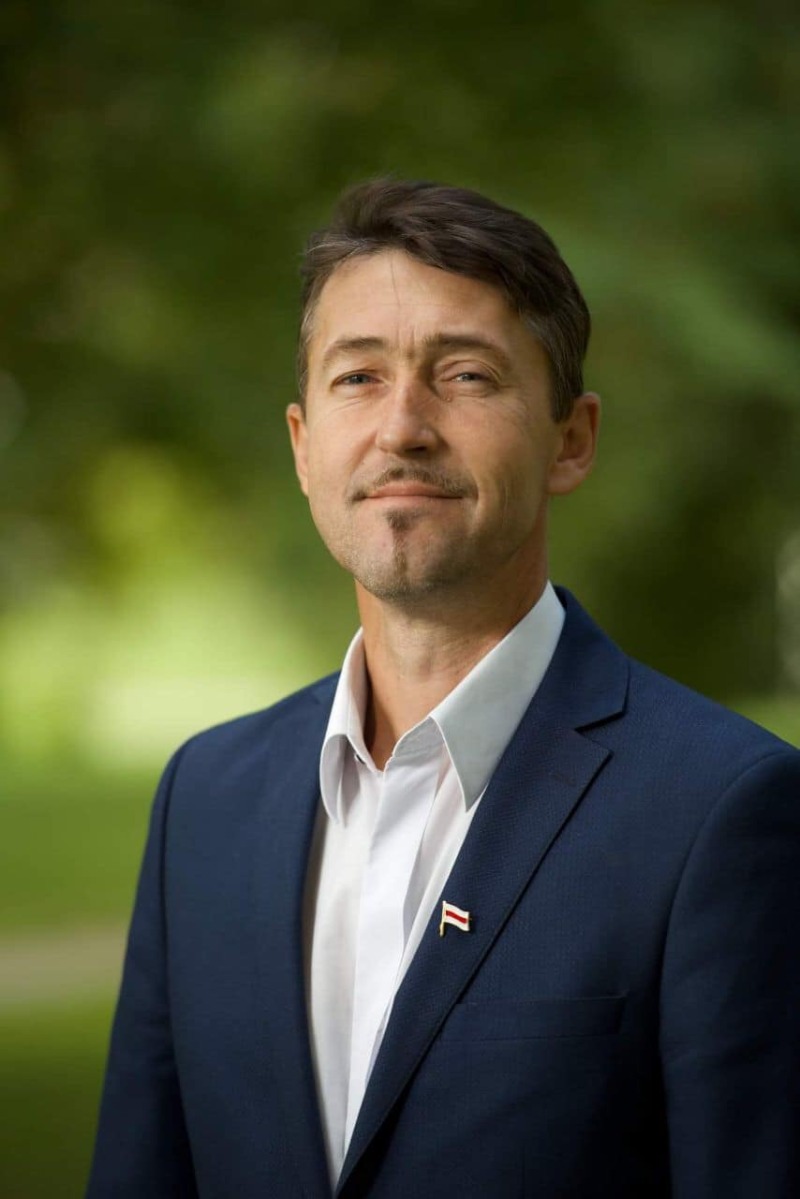
Persecution and punishment for white-red-white colors and symbols continue.
Main Directorate for Combating Organized Crime and Corruption is taking the initiative to include the white-red-white flag in the list of Nazi symbols as soon as possible.
Tragedy Behind Bars
Vitold Ašurak [Ashurak], a political prisoner, public activist who did a lot to preserve the historical memory in his region, died on May 21 in the Škłoŭ penal colony, where he was serving a 5-year sentence. The official reason is cardiac arrest, although Vitold’s widow commented he’d never had any heart issues before. Relatives hadn’t received letters from Vitold since late April. Vitold was 50 years old. He was hoping to be released in 2021. In his letters from prison, he shared that political prisoners were made to wear yellow labels on their chests.
On the evening of May 22, people bringing candles to the Parish Church in Lida (where Vitold lived) to honor the memory of the deceased, were detained.
Dissent and Cultural Activism
Artists in support of TUT.BY:
Vi Valiukevich; Elizaveta Goncharova; Ania Redko; Olga Yakubouskaya
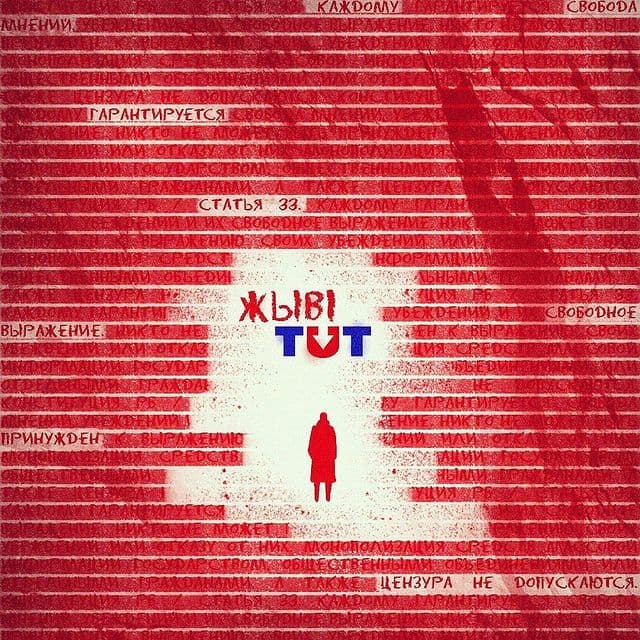

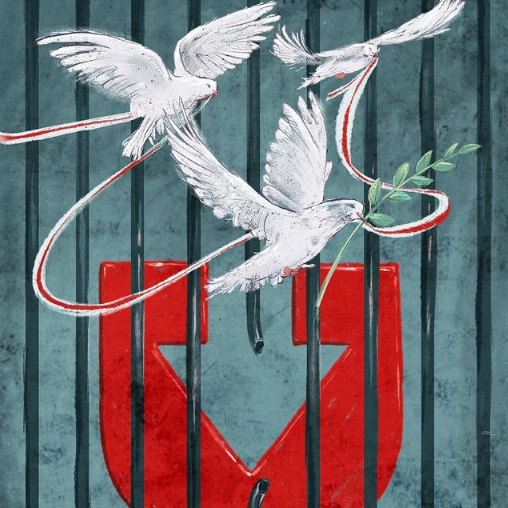

Several well-known Belarusian women took part in the photo shoot in Belarusian folk costumes.
On May 23, Free Kupałaŭcy presented the legendary play Paŭlinka with a happy ending. The play was first staged by the theater in occupation on May 23, 1944. Today it is staged by the theater in exile…

The play Imzha [Drizzle] was shown online actors and actresses fired from the New Drama Theater in the fall 2020.
34mag.net magazine created the film Art on the March. This is a story telling how Belarusians suddenly fell in love with their artists, and how lots of people discovered artists in themselves.
In support of the repressed cultural figures, Belarusian writer Sasha Filipenko donated to a charity auction three editions of his novels, which he will sign personally for the winner.
Voices of Belarusian Culture

Lilia Kvacabaja [Kvatsabaya], an artist,
“The new generation will build Belarus anew, Belarus in which one wants to live and which one wants to be proud of. They are already doing it. A girl writing “Long Live Belarus” on asphalt. A young man who collected signatures for an alternative presidential candidate and is in jail for that. An artist who participated in the protest with a daring and creative poster. They are all of us”.

Volha Kalackaja, translator, who was sentenced to 2 years of house imprisonment for a slap on the face to the official propagandist Azaronak,
“It seems to me that it is very important for all of us now, instead of getting frustrated, to sit down and calmly, sensibly analyze the mistakes we made. Why did we have that fantastic massive potential for protest in August, specifically August 16-30, but wasted it”.

Natallia Kaliada, program director of Creative Politics Hub, art director of Belarus Free Theater,
“The democratic changes we expected to happen last August didn’t happen. And we have come to the point where there’s only one option which can stop all repression in Belarus – Lukashenka’s political death from a thousand small strategic, political cuts”.
International Solidarity
A play based on Sasha Filipenko’s novel The Former Son, banned in Belarus, was staged in Ukraine.
A web talk The State of Artistic Freedom was arranged by Kulturpolitische Gesellschaft e.V. in Germany. Hanna Komar, poet and translator, talked about the artistic freedom in Belarus in 2021. See the link for the video recording of the talk.
Political Prisoners’ Birthdays

In May, three people who are somehow involved in the process of cultural development in our country will celebrate their birthdays behind bars. They are designer and architect Raścisłaŭ Stefanovič [Rastislau Stefanovich] (May 12), blogger Pavieł Spiryn [Paviel Spiryn] (May 20), student and artist Kasia Budźko [Kasia Budzko] (May 25).
Address for letters to Raścisłaŭ Stefanovič and Kasia Budźko: СІЗА-1. 220030, г. Мінск, вул. Валадарскага, 2
Address for letters to Pavieł Spiryn: ПК №2. 213800, г. Бабруйск, вул. Сікорскага, 1
Stand with Belarusian Arts and Culture community. Donate to Save Our Songs campaign.
